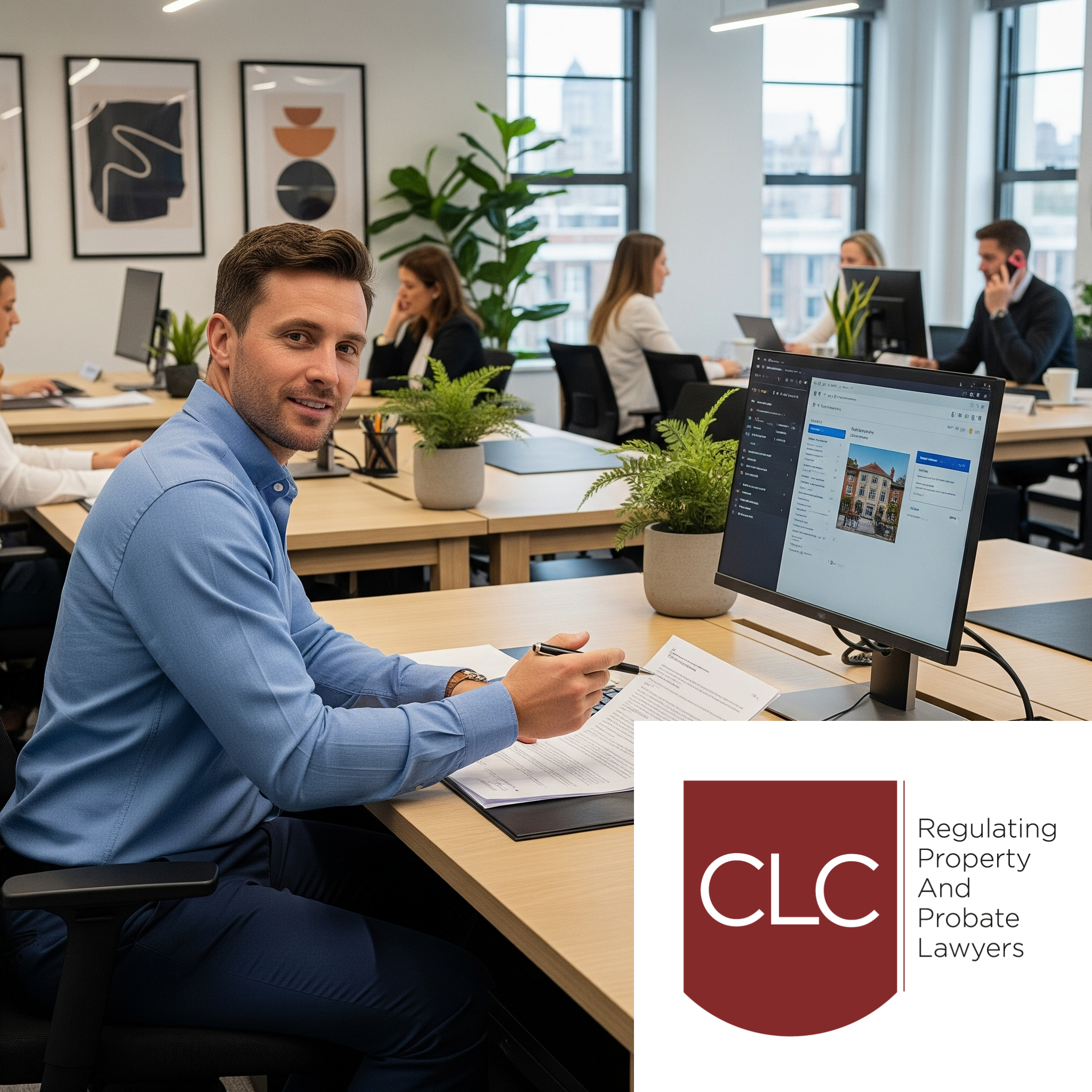Apprenticeship vs Diploma: Which Suits Your Career Goals?
Published: 30 August 2025
Choosing the right path to a career in law can feel overwhelming, but when it comes to qualifying as a Licensed Conveyancer or Probate Practitioner, you have two excellent choices: a diploma or an apprenticeship. The good news is that both are CLC-accredited and lead to the same successful outcome—a fulfilling, regulated legal career.
Whether you're a school leaver exploring your options, a career changer seeking a new direction, a paralegal ready to take the next step, or an employer looking to develop your talent and support your team’s career path, understanding the key differences between a diploma vs apprenticeship conveyancing routes is essential. This guide will help you compare these legal training routes to find the one that best fits your life.
Whether you want the flexibility of a diploma or the debt-free security of an apprenticeship, Access Law Online offers both routes to help you qualify.

Why Compare Apprenticeships and Diplomas?
Becoming a legal professional requires commitment and the right training. Both apprenticeships and diplomas are well-established, Council for Licensed Conveyancers/CLC-recognised pathways that equip you with the knowledge and skills needed for licensed practice. We'll compare these legal training routes to help you determine the best route to become a licensed conveyancer or probate practitioner.
Conveyancing & Probate Apprenticeships
What You Get with a Diploma Route
The diploma route is a popular choice for aspiring legal professionals seeking a flexible, self-paced learning experience. It involves two key stages: the Level 4 Diploma in Conveyancing Law and Practice, followed by the Level 6 Diploma, which together form the academic pathway to licensure.
When considering the diploma versus the apprenticeship route for conveyancing, the diploma offers several key benefits.
- Flexibility: You can study at your own pace, fitting your learning around existing work, family, or personal commitments.
- Accessibility: Our courses are 100% online, allowing you to study from anywhere with an internet connection.
- Faster Completion: If you are a dedicated learner or have prior experience, you can fast-track your studies to achieve your conveyancing qualification quicker. This may be the best route to become a licensed conveyancer if speed is your priority.
- Strong Pass Rates: Our structured courses and expert tutors help ensure a high rate of success.
However, it's important to consider the drawbacks:
- Study Time: Unless study leave is agreed upon with your employer, you will be required to study in your own time.
- Tuition Costs: While tuition can sometimes be paid by an employer, the student is usually responsible for the costs. If an employer does pay, they often require repayment if you leave the company within a specific time period.
- Practical Experience: Unlike an apprenticeship, you must arrange the required 1,200 hours of practical work experience yourself, alongside your studies.
Level 4 Conveyancing Diploma
What You Get with an Apprenticeship Route
The apprenticeship route is an "earn while you learn" model that integrates academic study with real-world work experience. It is fully funded by the employer, making it a debt-free path to a professional qualification.
Key benefits of the apprenticeship route include
- Earn While You Learn: You receive a full-time salary from day one, with no student debt for your legal education.
- Fully Funded: The employer's apprenticeship levy covers all tuition and training costs.
- Structured Mentoring: You receive hands-on training and mentorship from experienced professionals, applying theory directly to practice.
- Protected Study Time: All off-the-job training must be carried out during paid working hours, meaning your personal time is protected
- Variable Duration: While a typical apprenticeship can take 2 years for each diploma level, the duration can be reduced significantly based on your prior qualifications and experience, with some programmes taking as little as 8 months.
Potential drawbacks to consider:
- Employer Dependency: Your ability to start and complete a licensed conveyancer apprenticeship or probate practitioner apprenticeship depends on securing a position with a firm that offers this route.
The apprenticeship journey is one of continuous growth, guided by your employer and our expert tuition.
Apprenticeship vs Diploma: Side-by-Side Comparison
Feature | Apprenticeship | Diploma |
|---|---|---|
Cost & Funding | Funded through employer levy; no tuition fees for the learner; full salary paid while training | Self-funded (payment plans available); learner covers tuition costs |
Duration | Flexible: 24 months typical; can be fast-tracked with prior experience. Minimum duration 8 months. | Flexible: 12-24 months typical; can be fast-tracked with prior experience |
Practical Experience | Built-in workplace training and mentoring as part of the programme | Must arrange 1,200 hours of qualifying experience separately alongside study |
Recognition | CLC-accredited; leads to Licensed Conveyancer or Probate Practitioner status | CLC-accredited; leads to Licensed Conveyancer or Probate Practitioner status |
Flexibility | Structured schedule combining study with employer requirements | 100% online, self-paced, exams/assessments arranged when ready |
Best Suited For | School leavers, employers with supportive firms, those wanting to earn while they learn | Career changers, paralegals, independent learners seeking flexible self-study |
Start Your Career with Access Law Online
No matter which path you choose, Access Law Online provides the highest quality, CLC-approved training to help you succeed. Our conveyancing apprenticeship and diploma programmes are designed to meet the needs of both aspiring professionals and employers.
Our expert tutors and dedicated support teams ensure you receive the guidance you need to thrive. We stand out with our comprehensive offerings, providing both apprenticeships and diplomas to give you the power to choose the perfect path for your career or business.
Take the first step towards becoming a Licensed Conveyancer or Probate Practitioner today. Apply now and start building your legal services career.
Conveyancing & Probate Apprenticeships
Apprenticeship vs Diploma: Which Suits Your Career Goals? FAQs
Practical Experience CheckerMore related posts

Conveyancing Apprenticeship vs. Solicitor

CLC Conveyancing: Why Does Accreditation Matter?











